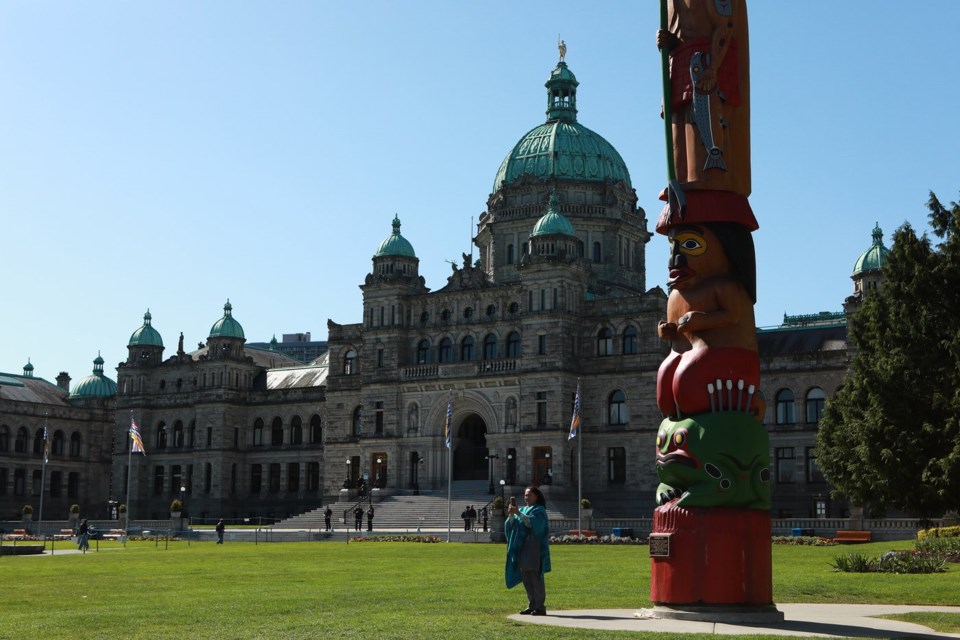Former Richmond, B.C., city councillor Harold Steves' family has been farming in the area since 1877, lending their name to the community of Steveston.
The 88-year-old former politician only retired from council three years ago, and few can match his knowledge of the controversies surrounding Richmond's farmland — the creation of the province's agricultural land reserve, influxes of foreign-money investors, a spate of mega-mansion construction and now the Cowichan Nation's Aboriginal title claim.
"It's just one battle after another for 50 years," laughed Steves, who still runs the family farm in Steveston, raising belted Galloway beef cattle.
He said he was surprised by the ruling last week that confirmed the Cowichan claim over a swath of land on the shores of the Fraser River, encompassing holdings by the Crown, the City of Richmond, as well privately owned farms and mansions.
"We didn't expect the court case to come in and say, 'This land is yours.' We expected treaty negotiations," said Steves.
The ruling in the B.C. Supreme Court confirms Aboriginal title and fishing rights are held by the Cowichan tribes over the land next to the south arm of the Fraser, where the nation had a summer village and members fished for salmon.
The ruling declares the Crown and city titles to be "defective and invalid," and while the same designation was not sought by the Cowichan for private titles, the ruling says that granting them had been an unjustifiable infringement on the Cowichan’s Aboriginal title.
B.C.'s government had a duty to negotiate the reconciliation of private ownership with the Cowichan's Aboriginal title, the ruling says.
The result has prompted concerns from the B.C. government and others about the implications for private property rights, with the province pledging to appeal.
But Steves is worried about the implications for precious agricultural land.
He said he agreed that the ruling should be appealed, but the province should "sit down with Cowichan and say: 'OK, we agree this is your territory. Let's negotiate a treaty.'"
Steves said that if farmland hadn't been included in the title claim, "then yes, it should be between the federal government and the Cowichan First Nation."
"But this court decision should not include farmland at all because it puts into jeopardy all the farmland in British Columbia."
Steves' grandfather started farming on Lulu Island, which now makes up the city of Richmond, in 1877 and founded the province's first seed company.
Steves, who served one term as a provincial legislator for the NDP as well as more than 50 years as a Richmond councillor, was one of the founders of the province's agricultural land reserve, a zoning designation introduced in 1973 that protects farmland from redevelopment.
He has spent years advocating for its preservation and maintaining its integrity from incursions that have included the construction of massive mansions, some more than 20,000 square feet, on land for farming purposes.
Steves said the Cowichan ruling brought back memories from 20 years ago when he was part of the Tsawwassen First Nation treaty negotiations.
"And on the table, we were negotiating farmland, and we actually predicted back then what's happening right now. It's scary to think about it, but that was our worry," said Steves.
He said that under those treaty negotiations, the federal government purchased hundreds of hectares of agricultural land to form part of the Tsawwassen lands.
He said that at the time, there were concerns that this would "set a precedent, because now land speculators will be buying land next to Indian reserves, or places where they think that they'll get land out of the agricultural land reserve."
"And lo and behold, along comes this (Cowichan) development," Steves said.
A lot of the private land in the Cowichan claim area was owned by "speculators," he said, who were also hoping to be bought out.
Steves said that without treaty negotiations with First Nations, farmland could be at risk.
"I hope we will weather this one (battle), and we'll get down to negotiating proper treaties," said Steves.
This report by The Canadian Press was first published Aug. 14, 2025.
Nono Shen, The Canadian Press



